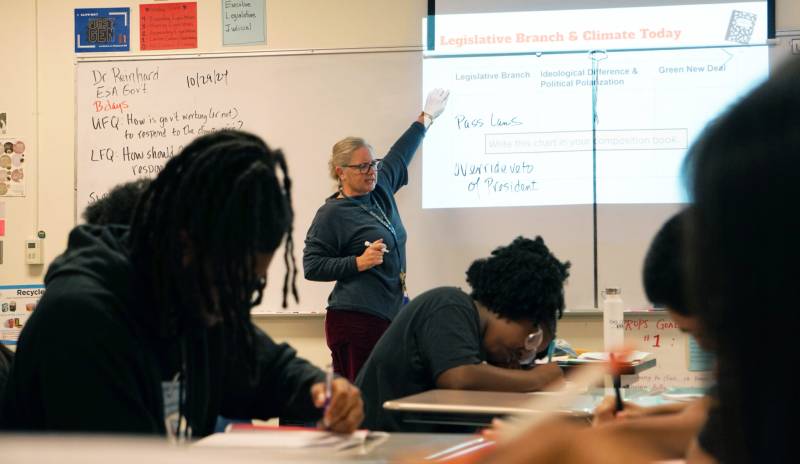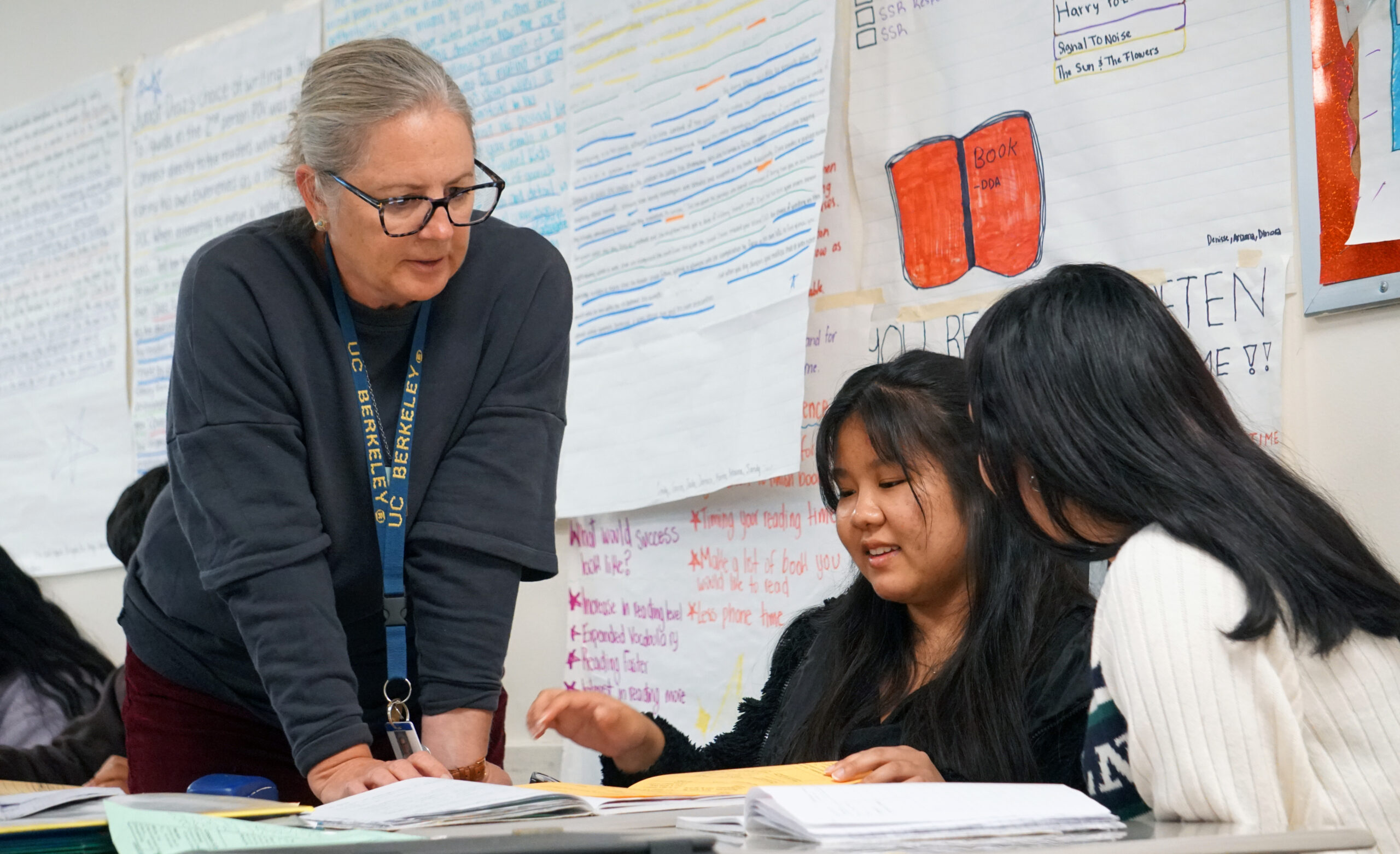To help students clarify their own political views, several teachers had students take the Pew Media Typology Quiz, whose questions reveal whether students have conservative or liberal philosophies.
Classroom priorities and strategies
The EdSource questionnaire asked teachers to describe the focus of their instruction and their plans for covering the election. The consensus was that a teacher should give students the tools to make informed choices about candidates and ballot issues.
James Yates, a teacher at Stellar Charter School in Redding, wrote, “I will teach my students how to investigate each candidate. I want them to look past the rumors and prejudice to see who will really help our country thrive.”
Kelly wrote, “We focus on helping the students make sense of the offices, candidates and propositions by understanding which issues matter to them the most.”
“Essentially, we focus on students informing themselves and using their own ideology to decide what is best,” said Jon Resendez, a U.S. Government and Economics teacher at Portola High in Irvine Unified. He has found that students, unlike some of their parents, are open when forming their political beliefs.
“It’s normal for teenagers to be more flexible than adults in their perspective as they learn more,” he said. “They adjust their voting behavior.”
Little outside criticism
Slightly more than a third of teachers responded to the question about whether they had experienced any criticism from teaching about the presidential election. The majority — 16 of 23 — said they had not, but five reported being criticized by parents, three by students and two by administrators or other colleagues.
All eight teachers EdSource spoke with said they were unconcerned about parental pressure or criticism.
“No parents are reaching out to express concern,” said Resendez. “Parents assume we will tackle issues head-on.”
Kelly, of Chawanakee Unified, uses his students’ work to inform parents about the elections. His students created election guides that they shared at the school’s back-to-school showcase in late October. It included separate objective profiles of Democrat Kamala Harris and Trump, drafted by students chosen because they didn’t support the candidates, Kelly said, along with summaries of local candidates and statewide ballot propositions.
At his back-to-school night, Fishback, of the Almaden County Day School in San Jose, encourages parents of his middle school students to discuss election issues and candidates with them.
He said that he tells them, “’I need you. If you have not passed along your political values, now is the time to do it. I want them to come to class knowing what families believe and why. My job is to help the students encounter and engage with different perspectives on a variety of contentious issues.’ ”
What the teachers taught and how
The survey asked teachers to check off a list of topics for presenting the presidential election and to add to it. Of 48 teachers who responded to the question, 37 said they reviewed candidates’ positions on key issues and 35 discussed the Electoral College; 28 asked students to explain issues that are important to them and 23 included fact-checking candidates’ claims and statements. Fifteen said they discussed claims that there would be widespread voter fraud.
One teacher included discussing gerrymandering, and another said classes would focus on differences among political parties but not the candidates themselves.
The teachers reported that they approached the topics with different strategies. Some had students participate in the traditional statewide mock election organized by the California Secretary of State or held their own elections. Some teachers held candidates’ debates, while others intentionally did not, focusing instead on objective analyses of candidates’ positions and the accuracy of media coverage.
“I’m not interested in debates,” said Reinhard of Oakland High. “Debates often create false parity. I’m not interested in having students try to win a debate around some information I find problematic.”
Yamamoto asks her students in Anaheim to pick five issues they care about and investigate the positions of the parties and the candidates’ websites to determine which party more closely aligns with their views. Inflation, health care and reproductive rights were among the issues. They did the same process with the 10 state initiatives on the ballot.
Barrett organized a model Congress for his students at Aptos High. Students wrote their own bills and had to persuade committee chairs and each legislative house to pass them. “Extreme” bills on immigration didn’t make the cut; those that did pass include creating affordable health care, limiting homework, requiring those over 70 to take an extra diving test, taxing billionaires, and granting immigrants who pay taxes for five years a path to citizenship, he said.
Some students become deeply invested in their bills, but usually they can control themselves, Barrett said.
Aster, of Carlsbad, and Kelly, of Chawanakee Unified, continued what they have done for years: bringing in outside speakers to represent parties and candidates for a debate run by students. “We seek regular folks, not politicians,” said Aster. “It’s always civil, and students see that you can be gracious while speaking strongly.”
Several teachers said they didn’t avoid controversy, including looking at the rhetoric of the campaign: Trump’s racist language and post-election authoritarian threats and Democrats’ calling him a “fascist” and a “clown.” But students looked at the furor through an analytical lens to keep discussions “from going off the rails,” said Fishback. He asked his students, How would you characterize Trump, and what has been the impact of his language on the campaign?
Most teachers emphasized they kept their own presidential preferences to themselves. “I work hard to be objective; I want it to be a mystery as to my views, though I don’t want them to think I don’t care,” said Aster. Kelly said he would tell students after the election whom he voted for if they asked.
“As much I like to lean into politics, the line I don’t cross is siding with one candidate over another,” said Fishback.
Seeing themselves as voters
Aster has been teaching high school for more than three decades.
“I see part of my job is to be a cheerleader for the American system and to have them look forward to participating in it,” Aster said. “I don’t want them to come away thinking the system is rigged.”


